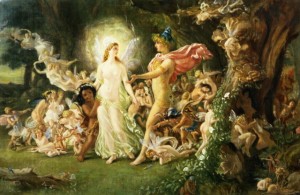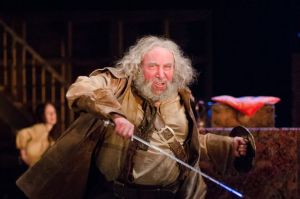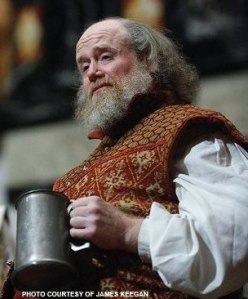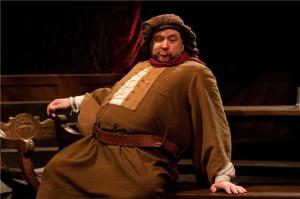The Earl of Worcester–Hotspur’s uncle–was a man that was very shrewd and manipulative. He is able to twist anything in his favour, getting what he wants whilst looking like the good guy. Basically, Worcester is the mastermind behind the Percy rebellion, but nobody really knew since he was skillful at doing things behind the scenes, pretending to be oblivious to it all. Having these traits makes him a rebel–probably the most rebellious character of the play.
Week 10 Response: Who ate the cheese?
George: I can’t believe you did it!
Tony: A. Watch your tone and B. it wasn’t me!
George: Yeah? It wasn’t you? Well, explain this! (takes out a photo of Tony eating cheese)
(Steve enters)
Steve: What’s going on?
George: Oh, fancy you coming here! Do you want to tell Tony what you saw last night?
Steve: Listen, A. Watch your tone and B. It wasn’t me!
George: But you saw it!
Steve: Leave me out of this!
George: You started this in the first place!
Tony: Listen, you both saw nothing! (takes out a paddle stick and smacks George and Steve)
Week 9 Response: Modern Day Falstaff and Prince Henry
Falstaff: What’s the time, mate? Huh, Hal?
Prince Henry: You can’t even talk properly because of all the alcohol you drink! You are so wasted! Look at you! You look like a mess! You have to lay off that food. You’re a blob! Take-away food isn’t any good! You don’t need to know the time… unless the hour glasses were Coronas, the minutes were pizzas, and the clock was the most tempting seductress.
Falstaff: See, now you’re talking, Hal! Party people like us operate at night by the moon and the stars and sleep during the day. You know what Hal, I think I’ll continue calling you mate when you become king, rather than “your grace”, since you don’t have any.
Prince Henry: What? Noe even for a little bit?
Falstaff: Nah, not at all!
Prince Henry: Just stop wasting my time! What do you want?
Falstaff: Alright, calm down!. I want you to stop the blame that the workers receive for supposedly wasting daylight by sleeping through it. When you become king, make us fancy–give us fancy names–give us a great reputation!
Week 8 Response: Who wore Falstaff better?
The costume fits Falstaff’s character really well. The brown and beige suits the Renaissance times as well as the actor’s hair colour and style. Out of the lot I’ve found, I think this actor would have played Falstaff the best.
I don’t think this is a great representation of Falstaff. Whether people agree with me or not, this costuming makes Falstaff look like something from The Lord of the Rings or some other fantasy film. Even the red vest looks like something of Chinese inspiration.
This representation of Falstaff seems to be overly comic. Although Falstaff may have a few humourous moments within the play, the costuming and even the facial expression captured in the picture takes the seriousness away from the character.
Week 6 Response: Surfer’s Paradise
Write a descriptive paragraph in the style of Tim Winton. Look at the way he uses language and try to bring your scene to life in the way he does.
The smell of the beach that waits to be enjoyed coolly slithers through my nostrils as I walk through the unfamiliar streets of Surfers Paradise. The chatter of local and foreign people fills my ears, calming me, reminding me of the not-so-foreign surroundings. The sun comforts my face like a father comforts their child. I may not be familiar with the surroundings, but I’m familiar with the sun’s comfort. Seagulls squawk. Diner bells ring. Waves crash. The atmosphere thrives on the life of tourists. Excitement sparks the flame that keeps the place alive. What is this place without the people? Beauty. What is the sun if it can’t warm skin? The same bright orb. What are waves if it can’t immerse bodies? The same blue sheets. What is this street if it doesn’t allow people to walk all over it? The same grey solidity.
Week 6 Response: Henry Lawson
http://adb.anu.edu.au/biography/lawson-henry-7118
This website is very helpful and beneficial! The website shares information about Lawson’s biography down to the very last interesting detail. Not only will readers learn the base of Lawson’s life, they would also learn how his works came to be.
http://www.poetrylibrary.edu.au/poets/lawson-henry
This website is similar to the first website, sharing key information about Lawson’s life. But it also contains all of Lawson’s poems, allowing readers to enjoy his works on a whole new level once they learn of a poem’s inspiration and so on.
Week 5 Response: All the world’s a stage…
“All the world’s a stage/ And all the men and women merely players”: what do you understand by this idea?
This line in Jacques soliloquy begins his exploration of human philosophy and the stages of human life. But this line alone is powerful and is filled with a fascinating image: the image that life itself is a performance that is put on the stage of the world and the actors—the people that are living their lives—begin and end their lives just as easily as walking on and off a stage during a performance.
This line really is fascinating. I mean, if the world truly is “a stage”, does that mean we are all living life according to our audience’s pleasure or are we all living life in order to convey a particular message? And, if we are performing, are we performing only when other people can see what we are doing, hence the audience? Or are we always performing regardless of who can see? These are all deep questions, some that are just too ridiculous to even comprehend, whilst others are worth considering.
Week 4 Response: The Golden Age
What would be a golden age for people living in the 21st century? Can you imagine what some of its components might be.
To be honest, I think a golden age for people living in the 21st century would consist of the same things people in any century would want a golden age to consist of: peace, harmony, prosperity and stability. It does not matter what sort of technology has advanced, what type of foods are popular or what style of clothing is current–there are always bigger things that make the century a dark one. Searching what “the golden age” is, many things I came across mentioned the fact that that age is unreachable and I completely agree.
War only exists because peace does. Hate only exists because love does. Darkness only exists because light does. There are good things out in the world that are a threat to the bad.
In this world, there will always be a constant battle between the good and the bad. I know this is sounding like a blurb that you would read on the back of a fantasy novel, but it’s closer to reality than you think.
Week 3 Response: The grass is green on the other side
Write a brief paragraph that describes your sense of what Duke Senior is saying about the value of living in the forest of Arden at the start of Act 2 scene 1.
Duke Senior seems to love living in the forest. He describes the lifestyle as “sweet” compared to that of “painted pomp”. I had to search the meaning of ‘pomp’, which is “ceremony and splendid display”, where I gathered that Duke Senior is commenting on the natural untouched beauty of the forest as opposed to man-made towns, houses and castles.
He also comments on the lack of worrying within the forest lifestyle—that the only worrying would be for the “icy fang [a]nd churlish chiding of the winter’s wind” and, even then, he “smiles”.
No detail is left out in order to sell the value of living in the Forest of Arden. Duke Senior goes on to describe the needs that forest provides him with—non-materialistic needs, such as education, conversation, spirituality, for he finds “[f]inds tongues in trees, books in the running brooks, / Sermons in stones, and good in everything”.
Week 2 Response: A Midsummer Night’s Idea
 Give a detailed explanation of where the idea of Midsummer Night comes from. Avoid simply cutting and pasting from Google sources. Do some research and try to write down what you understand to be important about this event and why Shakespeare my have chosen the idea as the focus for his drama.
Give a detailed explanation of where the idea of Midsummer Night comes from. Avoid simply cutting and pasting from Google sources. Do some research and try to write down what you understand to be important about this event and why Shakespeare my have chosen the idea as the focus for his drama.
William Shakespeare’s A Midsummer Night’s Dream was a turning point from the rest of his works, as well as other works within the English Renaissance, showing off his creativity, imagination, humour and knowledge. It is hard to pinpoint the exact inspirations and influences that helped Shakespeare write this play, but some of the obvious are Greek mythology (the name of Theseus and the mention of Greek gods and goddesses), folklore (Puck), and the happenings of theatre in Shakespeare’s times. Although, unlike many of Shakespeare’s plays, the plot of the play seems to be original by having no influences of historical and/or actual events. It is believed that Shakespeare had written and put on the play for a wedding or for the Queen in celebration of St. John. Both of these seem to make sense for the motive of the play since the play includes and emphasises comedic, romantic and tragic themes that would entertain guests at a wedding or a festival. Although, it does seem odd to include a love tragedy in a play for a wedding so I wonder if Shakespeare was trying to portray some sort of anti-love attitude or if he just did so to receive controversial feedback. I would have liked to witness that!




